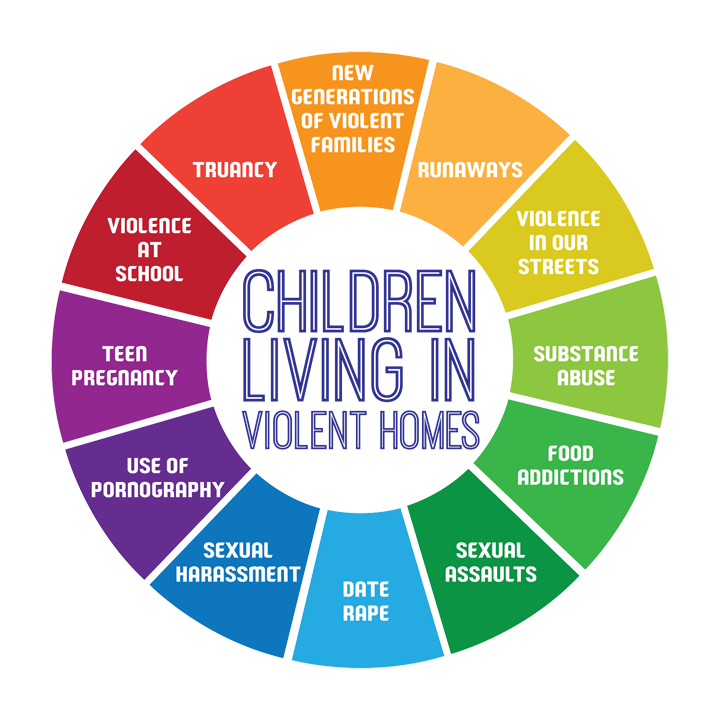How Does Domestic Violence Impact Children?
Over 10 million children a year are affected by domestic violence. These children are at a greater risk for being victimized as adults or becoming abusers themselves. It is also likely that the children witnessing violence in the home are victims of physical abuse. Children exposed to trauma are at serious risk for mental and physical health problems.
Children living in violent homes may feel fearful and anxious while anticipating the next violent outburst. The effects of trauma can be dependent on age. A child may revert to bed-wetting, excessive crying and whining. They may develop separation anxiety or have difficulty falling asleep. Some children will take on the blame and compensate by becoming the “model” child. Teens typically engage in risky behavior such as fighting, partying, bullying, and avoiding school.
Children who witness or are victims of emotional, physical, or sexual abuse are at a higher risk for health problems as adults. These can include mental health conditions, such as depression and anxiety. They may also include diabetes, obesity, heart disease, poor self-esteem, and other problems.
Every child responds differently to trauma exposure. Some are more resilient than others. Having a good support system, high self-esteem and healthy relationships can help in their healing. While kids may never forget what they saw or experienced, they can learn healthy coping skills to deal with their emotions and memories.
Children Living in Violent Homes

The sooner a child gets help, the better their chances are at being a healthy adult. You can do your part by:
- Making them feel safe
- Talk to them about their emotions and be sure to validate how they are feeling
- Teach them about healthy relationships
- Teach them about their boundaries – They are in charge of their own bodies. They shouldn’t have to hug every family member if they are uncomfortable
- Teach them about others’ boundaries – not everyone is okay with being touched. Ask permission.
- Help them build a support system – let them know that they are not alone. Their support system can include a therapist, a mentor, a teacher, or even other kids their age who have similar experiences.
